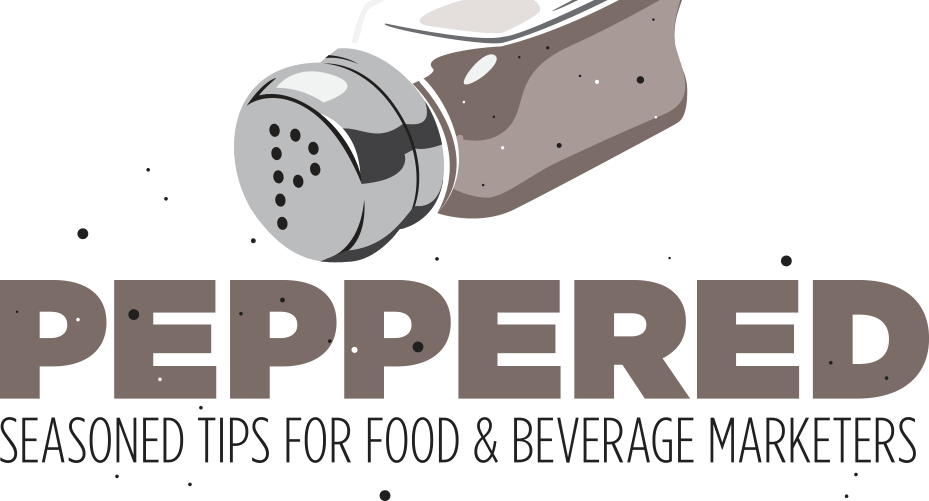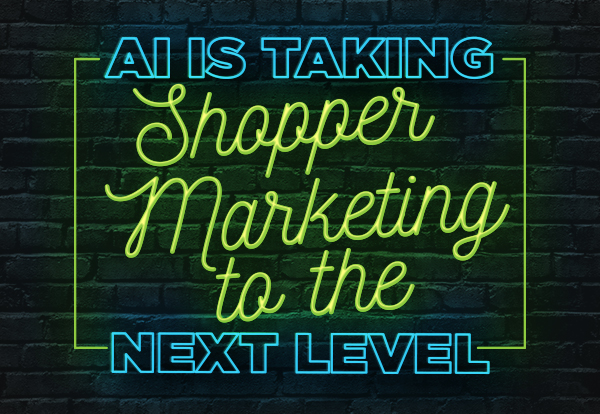Two of the hottest topics in food marketing are Shopper Marketing apps and the emergence of Artificial Intelligence. The conversation really gets interesting when these two topics collide, and we start to understand how AI can supercharge these apps to the benefit of the consumer, the supplier, and the platform.
Shopper apps like Instacart and Walmart Connect exploded in the early 2020s as new shopping patterns emerged. Due to the pandemic of 2020, customers were less willing to do their grocery shopping in stores. Instacart filled that temporary need for an alternative to brick & mortar, but as it turns out, consumer demand for groceries delivered to their front door was anything but temporary. Even as tensions eased and pandemic restrictions lifted, Instacart found that it still had a thoroughly engaged consumer base.
Established in January of 2021, Walmart Connect is a retail media platform whose mission is “to help brands and sellers meaningfully connect with these customers on their shopping journey.” Working with their first party data, Walmart utilizes each aspect of Walmart Connect to reach consumers both online and in-store. We’ll be focusing on the online portion.
Artificial Intelligence is one of the fastest growing media applications in the business. From decision making to object detection to complex problem solving, there are countless applications for AI across numerous industries, but for the sake of this article, let’s define the two AI functions that we’re most interested in:
– Conversational AI enables computers to understand, process and generate human language. Common examples of conversational AI are virtual assistants and chatbots. Siri & Alexa are both examples of conversational AI.
– Generative AI is a form of machine learning that is able to produce text, video, images, and other types of content. ChatGPT, DALL-E, and Midjourney are each examples of generative AI applications.
Instacart and Walmart Connect are utilizing Conversational and Generative AI to improve the performance of their respective platforms.
Instacart
Instacart’s Artificial Intelligence journey started with the development of an automated algorithm which was used to determine the ideal bid prices to win impressions for each client’s Sponsored Product UPC on the platform.
Instacart then developed a ChatGPT plugin to help consumers find the products they were looking for. This plugin allowed people to express their needs in natural language and then made those needs shoppable. Consumers could instantly go from searching to purchasing and have those items delivered to their door in under an hour.
Instacart took things a step further with the introduction of the Ask Instacart app. This new feature is an AI-powered search tool that offers personalized assistance to consumers. The Ask Instacart plugin works with the Instacart mobile app, enabling users to automatically generate recipes, shopping lists, or meal recommendations. Try asking “what’s for dinner?” or “what’s the best fish for tacos?” and Ask Instacart will instantly generate an in-depth, personalized response.
Instacart also uses AI language models to handle questions from their retail partners. By converting these questions into easily digestible summaries and labels, the Instacart team can quickly identify issues, group them accordingly, and save precious time and effort which translates into real dollars and cents for their clients.
Walmart Connect
Walmart Connect also utilizes an automated algorithm to determine ideal bid prices to win impressions for each client’s item on the platform. They currently run in the 2nd price auction where, if you win the bid on the impression, the advertiser only pays on the 2nd highest bid in order to keep costs low.
Walmart Connect is currently working on an AI tool that will help suppliers know when their campaign budget is too low or too high and recommend optimizations in real time. These recommendations will be based on more detailed measurement capabilities that will paint a clear picture of the campaign’s overall effectiveness, which will empower suppliers to make more informed decisions and maximize the efficiency of their spending.
Walmart is bringing AI technology into every level of their operation, including fighting empty shelves. They teamed up with an outside company to develop a system that uses cameras strategically placed throughout each store to automatically detect when a product is running low or out of stock.
AI is also being used to automate and optimize delivery service. AI is able to analyze real-time data from multiple sources–traffic, weather, customer preferences, etc–to schedule, route, dispatch, track packages, and assign the best routes for each request.
With the growth of these Shopper Marketing apps, and the constant evolution of Artificial Intelligence, it’s likely that these current applications are just the tip of the iceberg for AI-assisted shopping experiences. AI models will continue to get smarter, internal processes will continue to become more efficient, and finding & connecting with your customers will be easier than ever.






